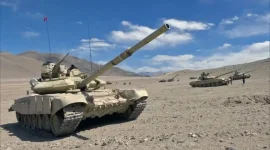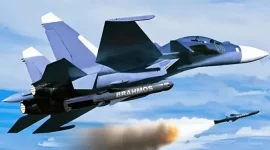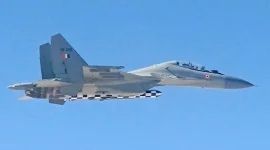- Views: 1K
- Replies: 4

Armenia, engaged in a complex geopolitical landscape and having experienced two wars with Azerbaijan since the fall of the Soviet Union, is turning to India for assistance in modernizing its defence capabilities.
The nation is reportedly seeking India's aid in upgrading its small fleet of four Russian-built Su-30SM fighter jets, and exploring the possibility of acquiring India's indigenous beyond visual range Astra air-to-air missile (BVRAAM).
This development comes on the heels of Armenia placing orders for rocket systems, artillery guns, and weapon locating radars from India, signaling a growing defence partnership between the two nations.
The desired Su-30 upgrade encompasses avionics, electronic warfare suites, and weapons integration, areas where India's Hindustan Aeronautics Limited (HAL) boasts significant expertise.
Colonel Hovhannes Vardanyan, head of Armenia's Air Force Department, expressed interest in HAL's capabilities during the recent multilateral Tarang Shakti 2024 air combat drills in India.
While initial conversations have taken place, the upgrade faces complexities due to the unique Su-30 variant operated by Armenia and the delicate regional dynamics involving Russia, a traditional Armenian ally that has grown closer to Azerbaijan in the wake of the Ukraine conflict.
Despite these challenges, India's defence ties with Armenia have steadily deepened. Armenia has turned to India for artillery guns and the Pinaka rocket system, highlighting its confidence in India's defence industry. The pursuit of the Su-30 upgrade and Astra BVRAAM further underscores this trend.
Armenia also aims to leverage the Indian Air Force's expertise in Su-30MKI operations for pilot and ground crew training, addressing its need for skilled personnel to effectively operate and maintain its Su-30SM fleet. This potential training partnership could further solidify bilateral ties and open doors for future defence collaborations.
India's vast experience with the Su-30 platform, coupled with its burgeoning indigenous defence industry, makes it an attractive partner for Armenia. While negotiations are ongoing and challenges persist, this strategic collaboration could significantly bolster Armenia's defence capabilities and reshape the regional security landscape.




